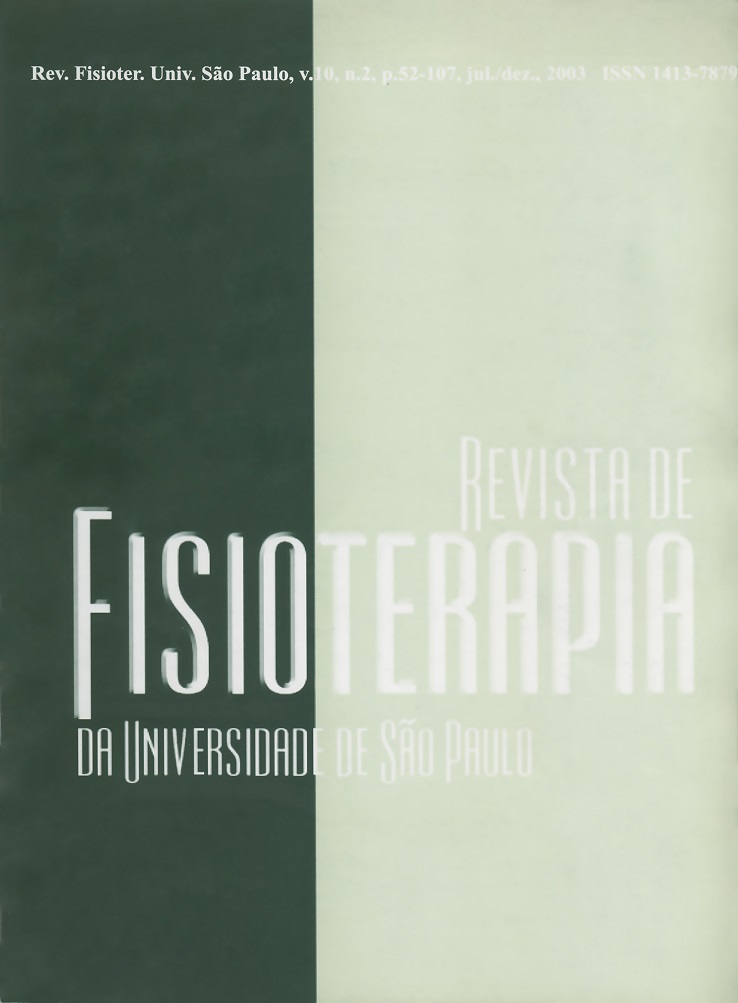The principies of muscular chains in avaliation of corporal discomfort and posture alterations in public transportation drivers
DOI:
https://doi.org/10.1590/fpusp.v10i2.78166Keywords:
posture, ergometry, transportation/manpower.Abstract
The present study aims to identify injured/committed muscular chains in public transportation drivers (PTD) and their relation to their duties/jobs. The analyzed variables were the posture alterations, the body discomfort referred during the performance of the PTD regular duties and daily habits related to physical activities. For the sample, thirty-three public transportation drivers from Florianópolis (SC) were selected. All of them have more than ten years of experience within this occupation. The datatools were gathered through the posture evaluation protocol developed under the muscle chain principles, questionnaires in which there arc questions regarding work and health conditions, habits and life style in relation to physical activity practice, besides the corporal composition and flexibility test by the Wells method and the discomfort scale for the different parts of the body. The results were analyzed using: descriptive statistic, average, standard deviation, percentage and the EPI-info software. Significant percentage of corporal discomfort in the spine, mainly in the lumbar area was verified from the analysis: Cramps, tingle sensation, numbness, and located pains were the most related complaints. Concerning posture analysis through muscular chains, posture
alterations were observed with consequent muscular harm. Therefore, we conclude that the PTD daily physical activity causes different levels of muscle-skeletal embarrassments on the point of to produce significant corporal discomfort that influence in their work life quality. And this is directly associated to work conditions, the pauses, the daily work, health conditions as well as the physical activity practice. The study showed that 62,4% of the sample pointed out the reduction in the coiporal discomfort rate, proving the physical activity practice benefits in which can become more efficient if they arc added to compensatory exercises and the autocorrective postures fundamental for the posture re-alignment.
Downloads
Download data is not yet available.
Downloads
Published
2004-12-31
Issue
Section
Thesis / Dissertations
How to Cite
The principies of muscular chains in avaliation of corporal discomfort and posture alterations in public transportation drivers. (2004). Fisioterapia E Pesquisa, 10(2), 100-101. https://doi.org/10.1590/fpusp.v10i2.78166



